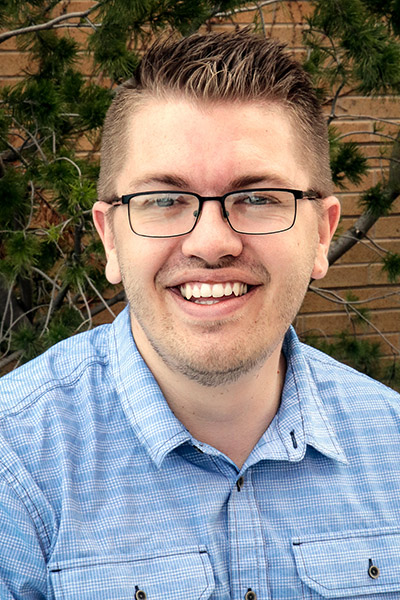IDRPP Researcher Works at Intersection of Mental Health & Disability

Dr. Ty Aller
Dr. Ty Aller, a researcher at the Institute for Disability Research, Policy & Practice, now has a new title: Research Assistant Professor. In addition to working with the Institute he will have a role in Utah State University’s Department of Human Development and Family Studies.
His work falls on the intersection of disability and mental health. An area of focus includes training paraprofessionals on mental health literacy, a training approach that seeks to prevent mental health issues from occurring or worsening. This work has created collaborations with USU Extension and the Utah Department of Health and Human Services. Dr. Aller’s research investigates strengths-based psychological treatments for autistic individuals experiencing mental health concerns.
He also researches how to support caregivers of individuals with Alzheimers and dementia, in collaboration with faculty from USU’s Department of Psychology and USU’s Alzheimer’s & Dementia Research Center.
“If you actually look at these two worlds, where you have disability rights advocacy and mental health advocacy, they often end up at the same disadvantage,” Aller said. Both disability and mental health concerns often come with stigma attached, and both were traditionally segregated from the rest of society. “But when we look at policy, they kind of operate as separate fields, which I think is interesting. Because folks that are within the disability community are probably most at risk to develop mental health concerns, and vice versa.
“It wasn't until probably the early 90s when clinicians were seeing folks with developmental disabilities, specifically intellectual disabilities, could even experience a mental health concern. One of the underlying stigmatized beliefs was that if you have an intellectual disability, you don't have a complex enough internal world to be able to experience a mental health concern.”
Mental health concerns are part of the human experience, he said. But sometimes they look different when a person with disabilities is experiencing them.
“One of the things that I'm hopeful about this is that we'll be able to educate more folks on inclusive practices, to be able to create more inclusive environments and systems for folks with disabilities and mental health concerns while also supporting their mental well-being,” he said.

